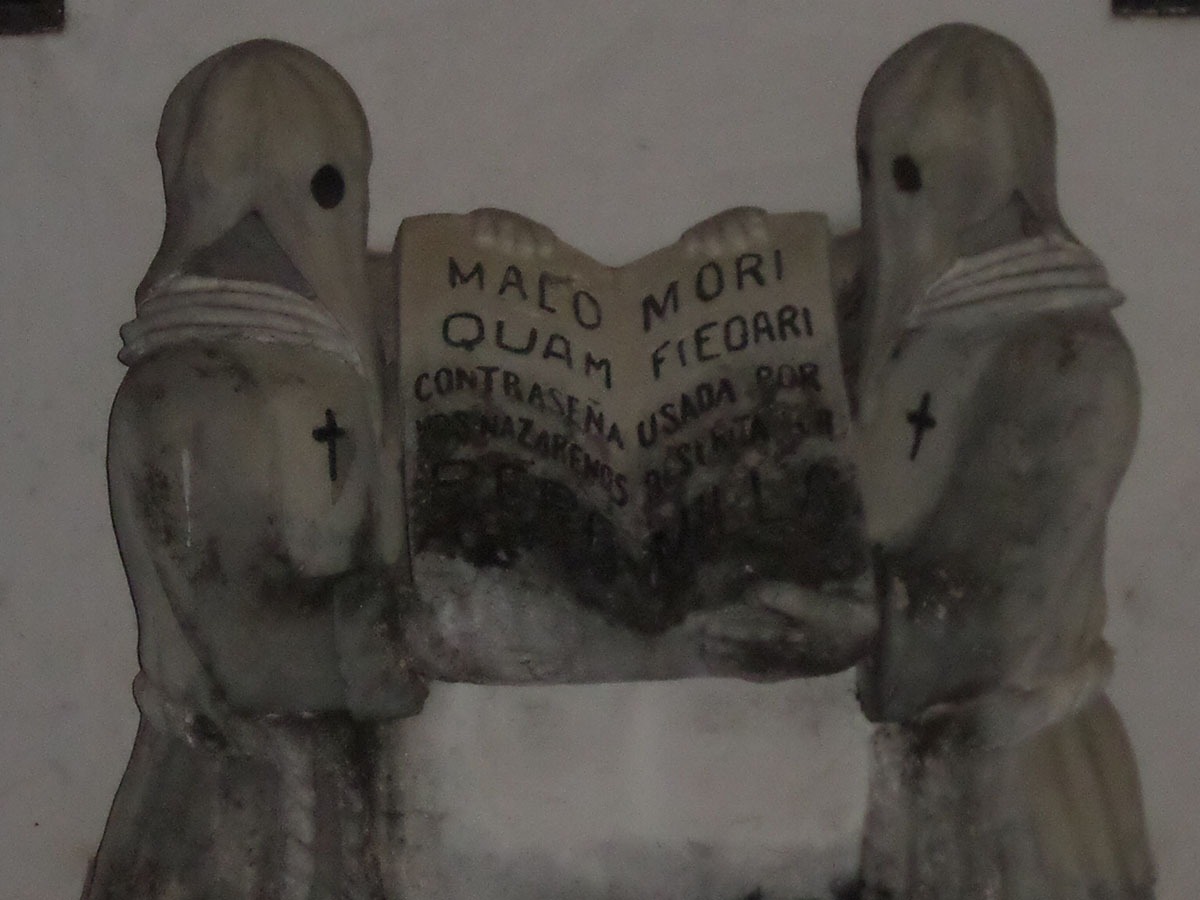When you approach the Panchoy Valley along the road from San Lucas, the first view of La Antigua that you’ll get is a postcard-worthy vista of volcanoes and stately buildings. When you finally reach the colonial city, just before turning to the right to cross the bridge that passes over the Pensativo River, you’ll see a small building that serves as a guardhouse for the police.
Look carefully and you’ll see that mounted on this structure there are two stone figures, their heads covered by conical caps that only reveal their eyes – similar to various types of headgear that are worn by some of the participants in the city’s Lenten processions. These figures are holding an open book in which can be read a phrase that’s sure to stir the imagination. This clue goes unnoticed by those who are unfamiliar with the book Los Nazarenos (The Nazarenes) by José Milla y Vidaurre, a famous 19th century Guatemalan writer. It’s the password phrase of a political group which, as told in the book, saved the Captaincy General of the Kingdom of Goathemala.
This sentence retains its force even today; in Latin it says, “Malo mori quam foedari,” which in English means “I would rather die than be dishonored.” In the book, this phrase served not only as the passcode to access the different places where the group met in secret, but also as a standard for behavior in colonial society.
The romanticism of meanings makes this magical city even more so, with a secret in full view of the world, and it symbiotically connects the historical and religious meanings. This is just one more of the mysteries that can be found down every street and around every corner of this beautiful and timeless city, La Antigua Guatemala.



